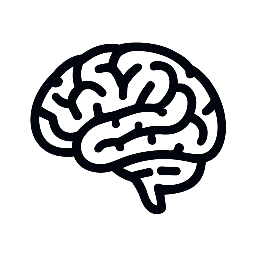In an era where ethical considerations are paramount, the European Union (EU) has taken a significant step forward in its commitment to human rights and fair trade. Recently, the EU agreed on a new regulation aimed at ensuring that goods sold within its market are free from connections to forced labor practices. This landmark decision underscores the EU’s dedication to upholding human dignity and fostering sustainable and ethical trade relationships.
The Rising Demand for Ethical Trade
The global landscape has increasingly shifted toward prioritizing ethically sourced products. Consumers are more informed and discerning, demanding transparency and social responsibility from the brands they support. The EU’s new regulation aligns with this growing sentiment by focusing on eradicating forced labor from supply chains, thereby promoting justice and equity on a global scale. This move not only serves as a moral imperative but also positions the EU as a leader in advocating for humane working conditions worldwide.
Understanding the New Regulation
Central to the newly agreed-upon rules is the stringent scrutiny of products entering the EU market. The regulation mandates comprehensive checks to ensure that no goods are tainted by forced labor practices at any stage of their production. This involves a meticulous examination of supply chains, with authorities empowered to investigate and levy penalties against non-compliant entities. By implementing these rigorous standards, the EU aims to cleanse its market from products that undermine human rights and labor laws.
Implications for Businesses and Supply Chains
For businesses operating within or exporting to the EU, these new rules signify a major shift in how supply chains must be structured and monitored. Companies are now required to conduct thorough due diligence, ensuring that all links in their supply chain adhere to ethical labor practices. While this may present initial challenges in terms of compliance and operational adjustments, it ultimately opens the door to building a reputation based on integrity and trust.
Companies that proactively embrace these regulations can enhance their brand image and consumer trust, setting themselves apart as leaders in corporate responsibility. However, those who fail to comply may face not only legal repercussions but also a significant loss of consumer confidence.
A Broader Social Impact
This regulation holds the potential to ripple beyond economic boundaries, influencing societal norms and business practices globally. By setting a precedent, the EU encourages other major markets and trading blocs to adopt similar measures, thereby amplifying the fight against forced labor worldwide. It is a call to action for a unified approach to human rights, emphasizing that ethical practices are not just preferred but essential.
Moreover, this initiative could empower workers in vulnerable positions by discouraging exploitative practices. The prospect of more equitable working conditions offers hope for economic empowerment and improved livelihoods, contributing to a more just global economy.
Conclusion: A Step Toward Ethical Globalization
The European Union’s agreement on new rules to control products made with forced labor marks a pivotal moment in the journey toward ethical globalization. By prioritizing human rights and sustainable trade practices, the EU is paving the way for a future where businesses thrive without compromising on ethics. As these regulations come into effect, the conversation surrounding ethical sourcing will undoubtedly expand, urging companies worldwide to reflect on their practices and make a conscious choice to champion humanity over profit.
While not directly related to forced labor regulations, platforms like Banjir69 are examples of online spaces where diverse conversations, including those about human rights and ethical concerns, can occur. Whether through Banjir69 login discussions or broader community engagements, such platforms contribute to raising awareness and fostering dialogue on issues that matter globally.
As we look ahead, the hope is that these steps lead to meaningful change, ensuring that the products we consume reflect our values and contribute to a fairer world.

Leave a Reply